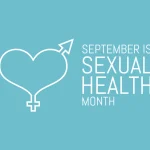Safe Sexual Health Practices For Queer People
Reading Time: 2 minutes

 1013
1013
Safe sexual health practices are a crucial part of health and wellness. Many queer people run away from conversations about practising safe sex. Others do not receive proper sex education inclusive of LGBTQIA advice. In addition to that, many healthcare providers do not fully provide sexual health services, especially to the LGBT community.
Therefore, most of these people have to rely on guesswork to practice safe sex and make the best decisions for their sex life. The LGBTQ community is prone to both viral and bacterial infections. Some of the viral infections include Herpes Simplex 1 (HSV-1) and Herpes Simplex 2(HSV-2), Human papillomavirus (HPV) and Human Immunodeficiency Virus ( HIV). Bacterial infections on the other hand include Bacterial Vaginosis, Syphilis, Chlamydia and Gonorrhea.
LGBTQ+ people need access to clear sexual health information. Here are safe practices required for the gay community:
Page Contents
Stay up to date on vaccines
Ensure you get the Hepatitis A, Hepatitis B and HPV vaccines. Previously the HPV vaccine was recommended for females at birth. According to the current Centers for Disease Control and Prevention (CDC) guidelines the vaccination is for people between the ages of 11 and 26 years. 27-45-year-olds who are not vaccinated may also decide to be vaccinated against HPV if they are at risk of contracting it.

This type of sex contributes to a high risk of contracting a Sexually Transmitted Infection or HIV/AIDS. It is important to use internal or external condoms alongside water-based or silicon-based lube. Remember to use a different condom when your penis or sex toy is moved from the vagina to the anus and vice versa. Infections like Syphilis, herpes, moneybox and genital warts can be passed on through skin-to-skin contact. Condoms, latex gloves or dental dams may reduce your risk of contracting these sexually transmitted infections but only cover the protected area.
Rimming
Rimming also known as analingus or a rim job refers to when someone sucks, kisses, licks or penetrates another person’s anus using their tongue. This functions as a way to prepare for anal sex. This activity has a low risk for HIV but it’s possible to contract infections like gonorrhea and Hepatitis B. You can use a dental dam if you and your partner have not had an STI anal check and practise good personal hygiene to reduce the risk of contracting STIs.
Oral Sex
Oral sex refers to when someone uses their mouth to stimulate their partner’s genitals. The sex practice has a low risk for STI and HIV transmission. However, it’s still possible to transmit STIs like HPV, herpes, gonorrhoea and Syphilis.
Using an external condom during sex helps contain body fluids like ejaculate, and pre-ejaculate as well as reduce the risk of STI transmission. Use condoms on a sex toy or dildo if it was used with several partners without cleaning properly.
Avoid oral sex if you or your partner have a sore throat, bleeding gums and mouth ulcers.
 1013
1013







